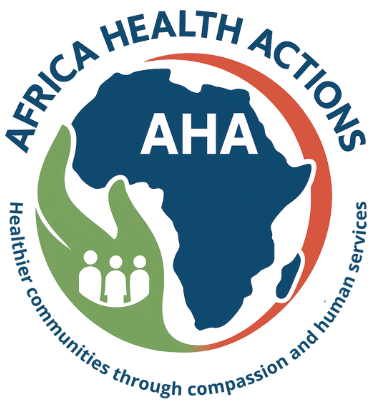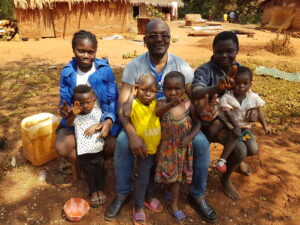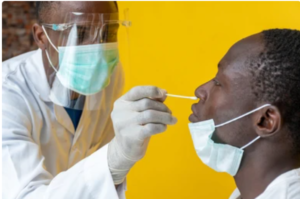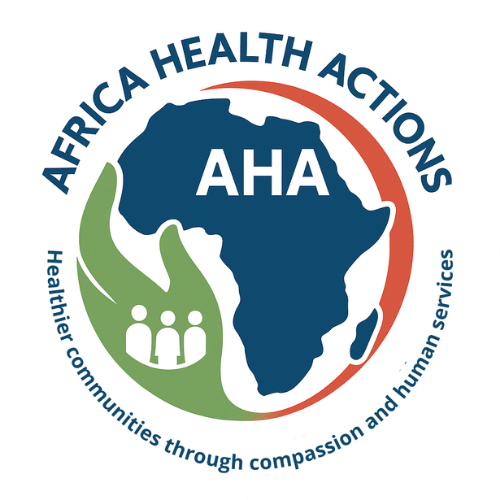The Democratic Republic of Congo (DRC), located in Central Africa, is the second-largest country on the continent by area and is home to an estimated 112 million people as of 2025. Despite its wealth of natural resources, the DRC remains among the poorest nations in the world, with a GDP per capita of approximately $649 USD. Decades of conflict, political instability, and underinvestment in basic infrastructure have severely impacted the health system. Life expectancy is approximately 62.1 years, and the infant mortality rate stands at 48 deaths per 1,000 live births, reflecting deep-rooted barriers to health access and equity.
Maternal, Newborn & Child Health (MNCH)
The DRC ranks among the countries with the highest maternal and child mortality rates globally. In 2023, the maternal mortality ratio was estimated at 547 deaths per 100,000 live births, more than double the global average. The under-five mortality rate stands at 73 deaths per 1,000 live births, while neonatal mortality is approximately 26 per 1,000. Despite representing only 1 percent of the global population, the DRC contributes disproportionately to child mortality worldwide. Contributing factors include limited access to skilled birth attendants, inadequate emergency obstetric care, chronic malnutrition, and ongoing armed conflict, particularly in eastern provinces such as North Kivu, Ituri, and South Kivu.


Malaria, Tuberculosis (TB), and Neglected Tropical Diseases (NTDs)
Malaria remains the leading cause of illness and death in the DRC. The country accounts for approximately 11 to 12 percent of global malaria deaths, and more than half of all outpatient visits are linked to suspected malaria, with children under five and pregnant women being most at risk. Tuberculosis is also a significant concern. In 2024, over 359,000 new TB cases were reported, placing the DRC among the world’s top 20 high-burden TB countries.
The country is endemic for all five major preventive chemotherapy-neglected tropical diseases (PC-NTDs): lymphatic filariasis, onchocerciasis, schistosomiasis, soil-transmitted helminthiasis, and trachoma. These diseases cause debilitating health conditions and social stigma, especially in rural areas where health services are scarce and community awareness remains low.
Disease Surveillance, Emergency Preparedness, and Outbreak Response
The DRC remains vulnerable to frequent and severe disease outbreaks. Since 1976, the country has recorded 14 Ebola outbreaks, including six between 2018 and 2022. It also continues to face outbreaks of cholera, measles, yellow fever, and bubonic plague. Insecurity, population displacement, and weak health infrastructure have hampered effective outbreak containment. While the Integrated Disease Surveillance and Response (IDSR) system has improved with international support, further investment is needed in early detection, logistics, real-time data systems, and coordination across provinces and borders.
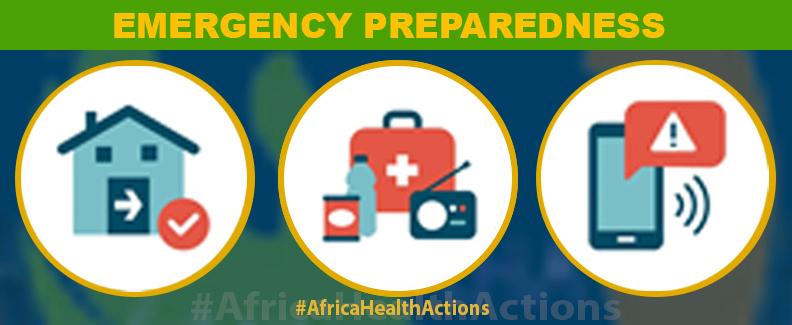
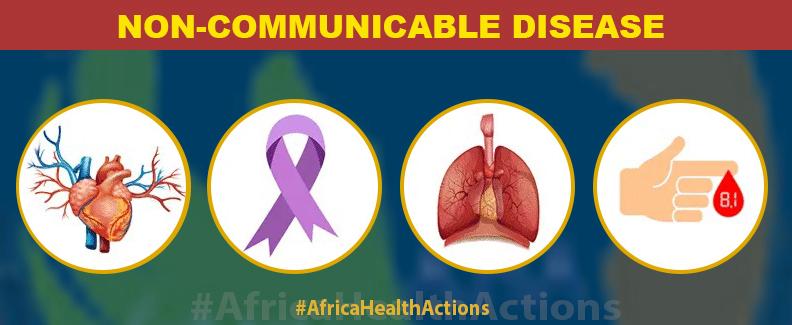
Non-Communicable Diseases (NCDs)
Although infectious diseases dominate the public health landscape, non-communicable diseases (NCDs) are an increasing concern, particularly in urban centers such as Kinshasa and Lubumbashi. The leading causes include cardiovascular disease, diabetes, chronic respiratory illnesses, and cancer. As of 2021, the age-standardized mortality rate from NCDs was estimated at 777 per 100,000 males and 656 per 100,000 females. Challenges in addressing NCDs include limited access to diagnostics, a lack of structured care pathways, low public awareness, and the high cost of long-term treatment. Integrated primary care approaches and strong national policy frameworks are urgently needed to prevent a silent epidemic.
OUR PROJECTS & PROGRAMMES
Advocacy and Policy Influence:
We champion policy reforms that strengthen community-led health systems and promote equity in service delivery, particularly in conflict-affected and underserved areas. Our advocacy efforts prioritize inclusive, locally informed, and evidence-based strategies aligned with national and international goals.
Maternal, Newborn, and Child Health (MNCH) Capacity Building
We provide hands-on training to Community Health Workers (CHWs) to expand access to MNCH services in remote areas. These workers help bridge the gap between health facilities and vulnerable populations, promoting timely care and improving survival outcomes for mothers and children.
Community Interventions for TB Prevention and Treatment
Our TB-focused programs in Kasaï Oriental, Lualaba, Haut-Katanga, Kinshasa, and surrounding areas deliver community education, support treatment adherence, strengthen referral networks, and build the capacity of local actors to detect and manage TB cases effectively.
Malaria Prevention and Control Activities
We support malaria case management through the training of CHWs in the use of rapid diagnostic tests (RDTs), provision of antimalarial treatment, and the distribution of long-lasting insecticide-treated nets (LLINs) in high-burden provinces. We also work to strengthen community surveillance and reporting.
Disease Surveillance, Emergency Preparedness, and Outbreak Response
In Equateur and Haut-Katanga, we train local response teams, strengthen early warning systems, and facilitate coordination across health sectors to improve outbreak response. Our approach includes simulation exercises and support for real-time reporting mechanisms.
Monitoring and Evaluation (M&E)
We implement rigorous monitoring and evaluation frameworks to assess program impact and ensure data-driven decision-making. Our tools are designed to capture community feedback and adapt interventions to changing local conditions and epidemiological trends.
